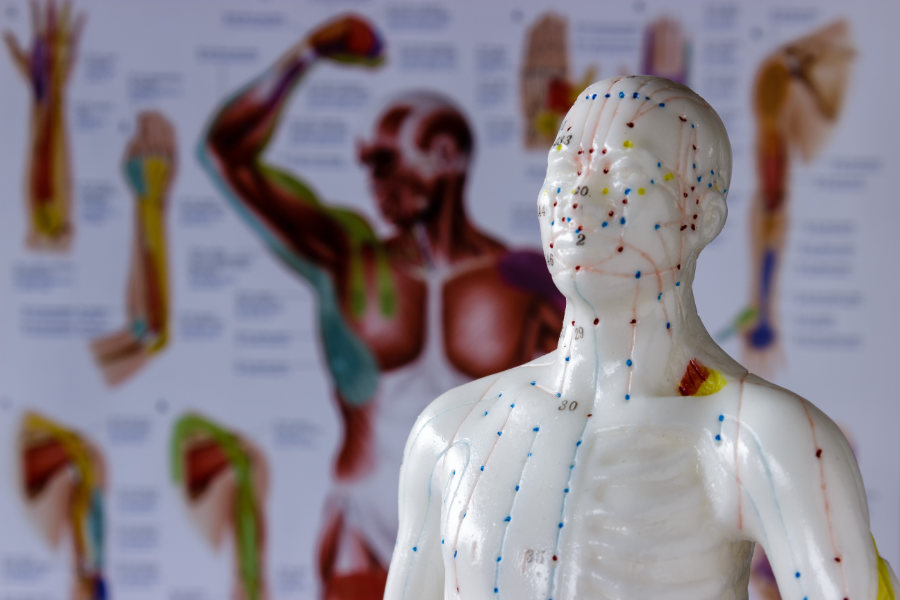
Eastern medicine, also called Traditional Chinese medicine, is an alternative medical practice that uses traditional medicine as a holistic approach to wellness. This includes using modalities and therapies such as acupuncture, herbal remedies, and cupping therapy. Western medicine is what is considered modern medicine. This focuses on medication to treat symptoms and other treatments based on modern medical practices and pharmaceuticals.
Often, both forms of treatment seem to be at odds with each other; however, this isn’t the case. It’s a misconception that Eastern and Western medicine cannot work together, and today, we’ll go over how they can work together to help people get out of pain and into balance.
Contrasting Approaches
While both practices approach treatment differently, they aim for similar goals: your health and wellness.
Western medicine tends to focus on managing symptoms with pharmaceuticals. A systemic approach attempts to separate your body’s systems to determine the cause of the symptoms and the treatment. This is typically done with prescribed drugs to help treat diseases and other conditions. Western medicine tends to make treatment plans based on a patient’s symptoms.
Eastern medicine has a holistic approach to your wellness. It attempts to find the root of the issue rather than just the symptoms. It attempts to restore balance within the body through alternative therapies such as the aforementioned herbal remedies or acupuncture. Eastern medicine often focuses on preventing diseases and keeping your body balanced.
Can Eastern and Western medicine work together?
They work well together. Various studies point to the benefits of combining Eastern and Western medicine practices. PubMed Central says acupuncture, a traditional Chinese medicine, is more effective when used with conventional medical treatments to treat lower back pain.
Synergies Between Eastern and Western Medicine
While the approach may be different, the goal remains the same. The goal is to relieve a person of their pain and ailment ultimately. Eastern and Western medicine can synergies complement a patient’s care despite the methodology.
Western medicine’s strength to manage acute symptoms works well, while Eastern medicine finds the root cause of the issue. They are promoting overall health, together creating a comprehensive wellness approach.
Combining both forms of medicine emphasizes a unique and personalized care to the patient which recognizes the immediate relief of modern pharmaceuticals while discovering the root cause of the problem to promote long-term wellness. An example is using antibiotics and herbal remedies to enhance treatment outcomes for certain infections, such as bacterial infections.
Is Combining Eastern and Western Treatments Right for You?
While combining both forms of medicine for minor or less significant issues is common, it’s best practice to speak to your healthcare providers to ensure that you are doing it safely. Many medications can have adverse reactions to herbal supplements, such as ginkgo biloba and aspirin, which can increase the risk of bleeding, as well as many modalities that may not be recommended for people with certain conditions, such as blood-related disorders and cupping therapy.
With proper supervision, the two forms of medicine can be combined in many ways. After all, the main goal of both medicine styles is to heal you and ensure you can return to enjoying your life.
Take the Next Step In Improving Your Health by Contacting SOHMA Integrative Medicine
Our goal is to help you improve your health. You can contact us and ask about the Myers Cocktail, IV Therapy, Chiropractic care, or how our other health service lines can help you with your journey to improved health.
Located in Long Beach, CA, we help individuals from the surrounding cities.
We look forward to helping you take the next step to better health.